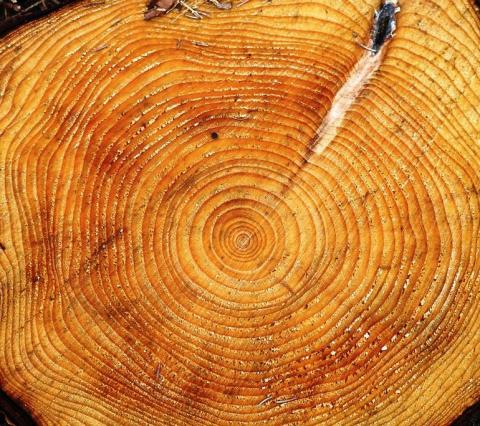E-RIHS | Dendrochronology Lab | Cyprus
On Tuesday, December 11, The Cyprus Institute hosted the signing ceremony for the establishment of the ‘Cyprus Dendrochronology Laboratory’ (CDL). The laboratory is a collaborative effort between the Tree-Ring Laboratory of Cornell University, the Department of Antiquities, the Department of Forests, and CyI. The event was addressed by the Honorable Minister of Transport, Communications and Works Mrs Vassiliki Anastassiadou who underlined the importance of this collaborative effort that engages two governmental departments, and the instrumental role of CyI and its Science and Technology in Archaeology and Culture Research Center (STARC) in the study and protection of Cypriot Heritage. The four partners were represented by Prof. Sturt Manning (Director, Tree-Ring Laboratory, Cornell University), Dr. Marina Solomidou-Ieronymidou (Director, Department of Antiquities), Dr. Andreas Christou (Chief Conservator of Forests, Department of Forests), and Prof. Costas Papanicolas (President, The Cyprus Institute), who addressed the event and signed the agreement for the establishment of the laboratory. The events room of the NTL building was in full capacity attended by many dignitaries, including Her Excellency the Ambassador of the United States, Mrs Kathleen A. Doherty, members of the archaeological and cultural heritage community of Cyprus, CyI Board members, faculty, staff, and students. The CDL lab will be developed within the framework of the Andreas Pittas Art Characterization Laboratories (APAC Labs) of STARC, which is dedicated to pursuing and promoting the analytical and digital exploration of works of art, monuments and archaeological objects. Dendrochronology will further enhance the range of scientific methods employed in the study of monuments, sites and artefacts. Furthermore, CDL will also benefit from the research development of the recently established A.G. Leventis Chair in Archaeological Sciences, as well as from the work of CyI research groups in climate & environmental studies, hydrology and water management. Overall, this is an important milestone for CyI and STARC, as it underscores not only the potential for dendrochronological research in Cyprus and the region, but also the key significance of research synergies between leading research institutions and governmental departments. In his address, Prof. Papanicolas underlined that this collaboration exemplifies the role and mission of The Cyprus Institute as an enabler in the effective development and application of science and technology in archaeology and cultural heritage in Cyprus and the region. Dr. Ieronymidou and Dr. Christou emphasized that the development of the ‘Cyprus Dendrochrology Laboratory’ is expected to enrich the study of the wooden heritage of Cyprus (i.e. archaeological material, icons, wooden roofs and beams), as well as to provide data related to past environmental and climate conditions as they relate to the history of the island’s forests. The event concluded by a public lecture by Prof. Sturt Manning, titled “Dendrochronology in Cyprus and the Eastern Mediterranean: Challenges and Opportunities” in which he offered an introduction to the methods of dendrochronology, and presented preliminary research results of dendrochronology research for Cyprus.


